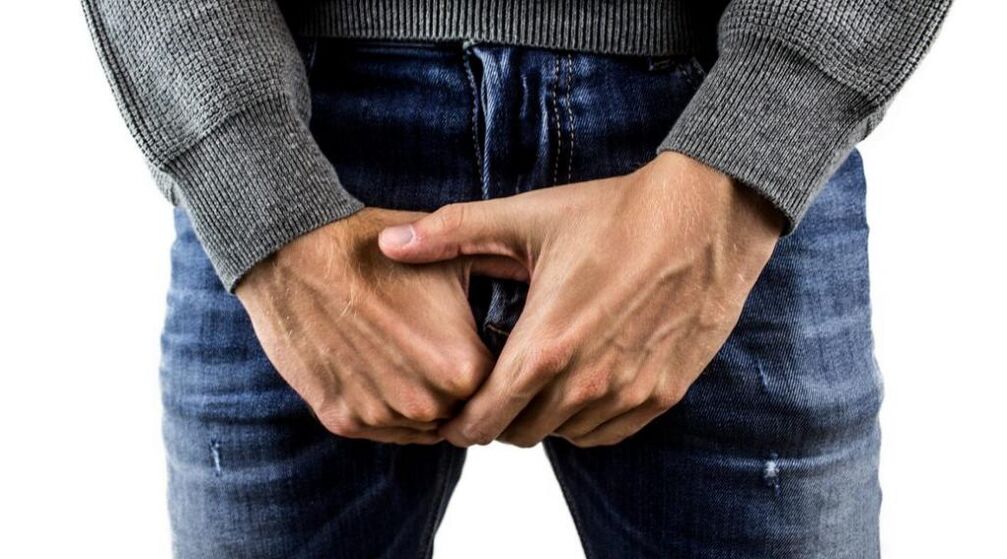
Prostatitis is a disease of the urogenital system that occurs due to the inflammation and abnormal increase in size of the prostate, which causes difficulty urinating. This pathology most often occurs in men between the ages of twenty and fifty. It should also be noted that for a long time the symptoms of prostatitis do not appear in any way.
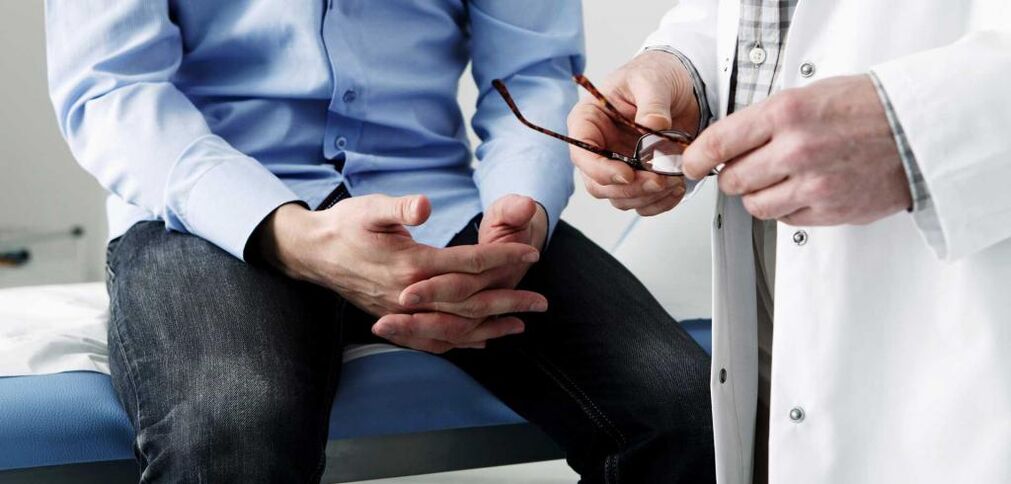
The reasons
Causes of the disease:
- hereditary predisposition to the disease.
- Circulation disorders.
- Inactive lifestyle.
- Pathologies of the formation and development of the urogenital system.
- Infectious diseases.
- Injuries to the pelvic organs.
- Hormonal disorders.
- Delayed sexually transmitted diseases.
- Insufficient bowel movements.
- Violation of personal hygiene rules.
- Promiscuous sexual relations.
- Use of urological catheters.
- Hypothermia.
- Age-related changes in the body.
All these factors can trigger the development of prostate adenoma in men. It should also be noted that in no case should you try to solve this problem yourself, as this can aggravate the course of the disease.
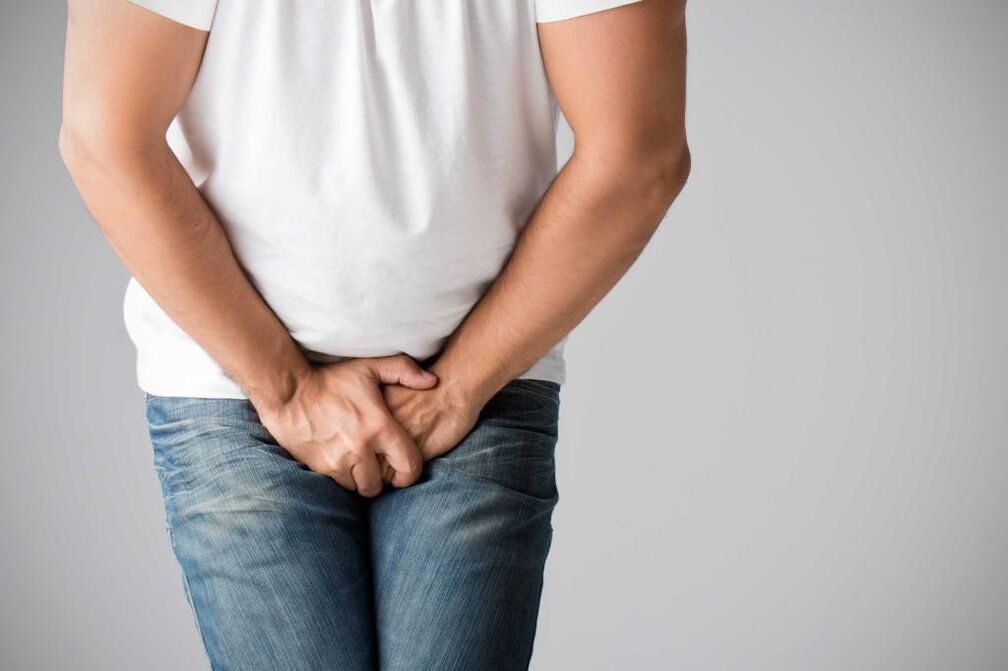
Symptoms
Symptoms of acute prostatitis include an increase in body temperature and frequent urination, accompanied by pain and weak pressure. In addition, indicators of prostatitis are burning in the perineum and rectal pain during defecation. During the period of purulent inflammation, an unexpected opening of the abscess and outflow of pus from the urethra or rectum is possible.
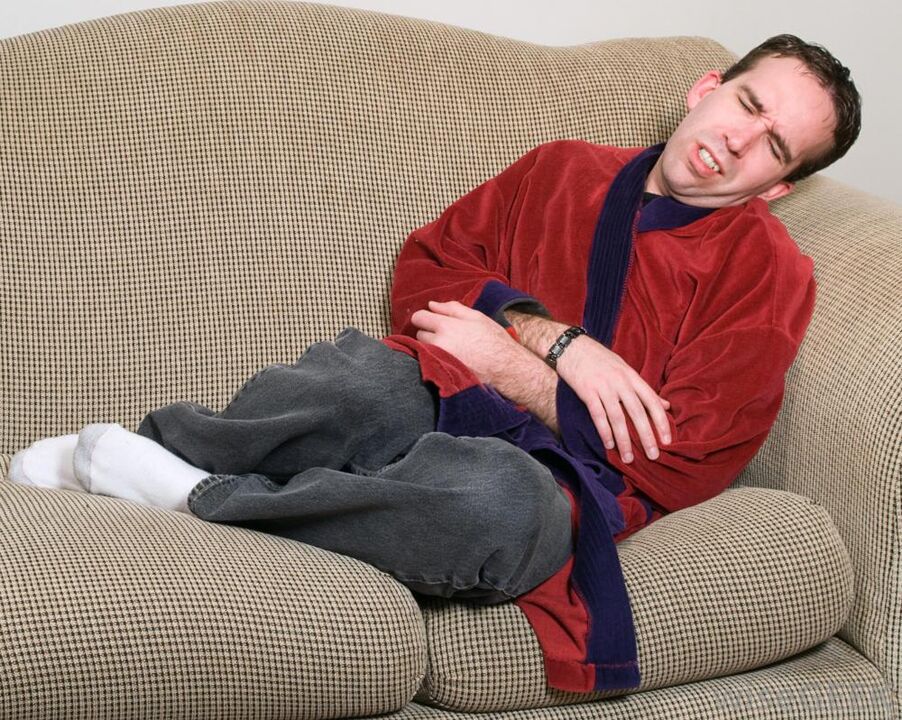
A sign of chronic prostatitis is a strong burning sensation in the urethra and perineum, the release of pus at the end of the defecation or urination process, strong asthenia and nervousness of the man.
Difficulty urinating is very dangerous for prostatitis, which, if it is impossible to treat quickly, can cause acute urinary retention.
Men should not ignore the indirect symptoms of the development of prostatitis, such as an absolute or partial decrease in sexual desire, accelerated ejaculation, and in some cases, painful, prolonged erections at night. All symptoms are characteristic of inflammation of the prostate, while still being uncomplicated and amenable to appropriate treatment.
If we talk about manifestations that are obvious even to non-specialists, then in most cases patients pay attention to colorless or in some cases purulent discharge from the urethra, especially in the morning, as well as the presence of white flakes and threads. in the urine.
When symptoms of prostatitis appear, only a specialist prescribes treatment and medications.
Diagnostics
The severity of the symptoms of the disease simplifies the diagnosis, however, the diagnosis is a necessary condition for the differential differentiation of adjacent conditions.
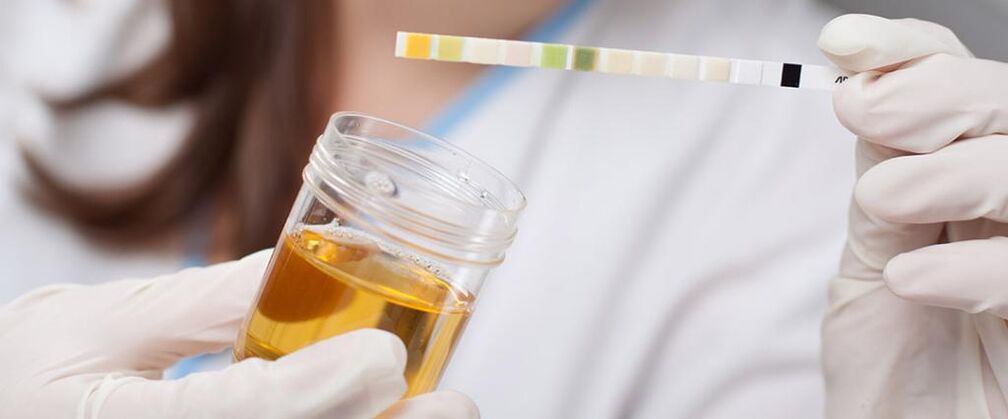
Effective complex treatment of prostatitis, including drugs and folk remedies, requires timely diagnosis of the disease using various methods, which must be performed in order to obtain accurate data:
- Collection of anamnestic data. This is the primary information gathering method, the nature of the patient's complaints is investigated.
- Rectal palpation palpation. The patient is examined in a knee-elbow position, then the doctor places his index finger in the anus and gently feels the prostate gland. This method makes it possible to determine the intensity of pain and the degree of enlargement of the organ.
- Conducting an ultrasound examination. It is carried out in two ways. Either through the abdominal wall or by introducing the device into the anatomical cavity of the rectum. For the examination, the diet must be followed and a complete bowel movement must be performed. This method allows you to get clear information about the nature of the disease.
- Study of the general analysis of urine. It is performed to study the nature of the inflammation and to analyze the bacterial flora.
- Analysis of testosterone levels. This is an additional diagnostic method and allows determining the functional characteristics of sperm.
- Examination of the patient's somatic condition.
Medical therapy
A comprehensive set of drugs for the treatment of prostatitis: hormonal, anti-inflammatory, immunostimulating drugs and strong antibiotics. All of them can interact with each other and fit well with folk methods.
Antibiotics
In order to quickly get rid of disease-causing bacteria, experts prescribe antibiotics to patients. Preparations of this type can be produced in the form of tablets, capsules, rectal suppositories.
In order for the treatment to give good results, you must take the medicine for at least 2-3 weeks.
Anti-inflammatory
If such therapy was ineffective or the disease did not develop due to the development of bacteria, the doctor prescribes anti-inflammatory drugs.
These types of drugs relieve inflammation and reduce swelling. Thanks to the pain-relieving effect, the patient feels much better. Medicines should be taken in a short course, as they negatively affect the functioning of the digestive system.
Alpha blockers
During the treatment, a rapid improvement of the condition can be achieved with the help of alpha-blockers. Medicines improve urinary and sexual function. Medicines act directly on the nervous system, which is responsible for the work of the muscles of the urethra and bladder. As a result, spasms decrease, pain during urination disappears, and inflammation decreases.
Rectal suppositories
In order to carry out the treatment as safely as possible, without damaging the kidneys and liver, you can use rectal suppositories. They usually contain pain relievers, herbs, bee products, antibiotics.
Candles relieve inflammation, reduce swelling and pain. Restores blood circulation and urinary tract function. The duration of treatment is usually 10 days.
Immunomodulators
Immunomodulators are needed to support the body during treatment, to improve the functioning of the immune system and the general condition of the patient. With the help of hormonal drugs, inflammation can be eliminated and sexual function can be restored. They are usually prescribed when the patient has low male hormone levels.
Folk methods
Effective treatment of prostatitis with folk remedies involves the use of various fees and herbs. In some cases, experts independently recommend combining alternative treatment with conventional treatment to speed up the effect.
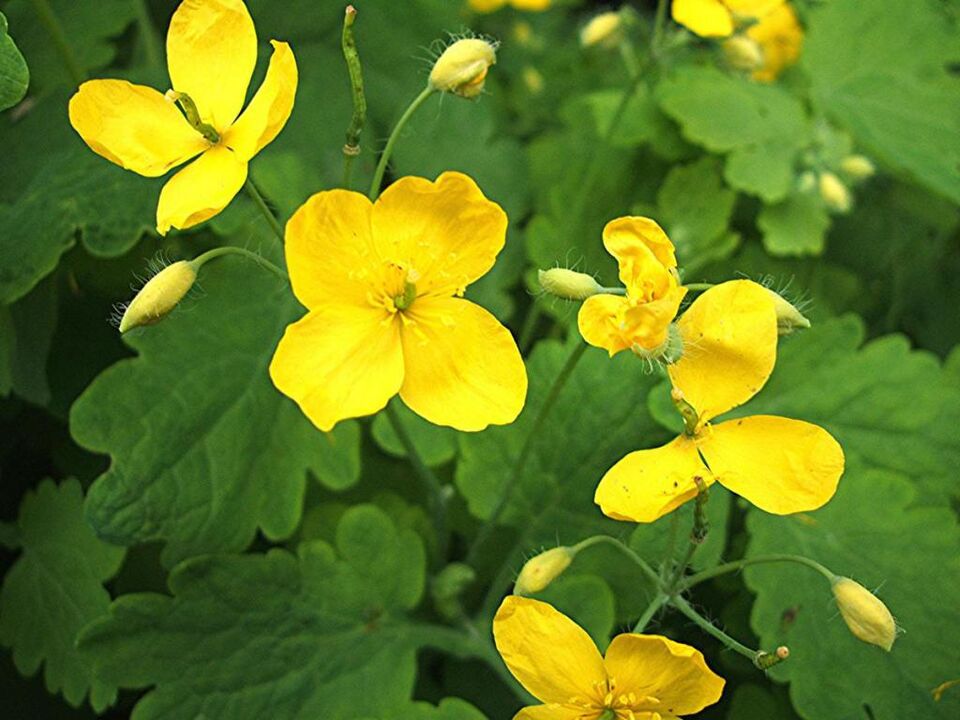
Popular recipes include:
- Celandine with honey. Its use is recommended after completing the complex treatment. It is important to know that the use of celandine is strictly prohibited in the case of acute inflammation, the treatment can only be used after it subsides. Then celandine should be boiled in a ratio of 1: 7 and left on fire for 15 minutes. After the solution has cooled, it should be filtered through gauze and 500 g of natural honey should be added. To achieve the desired effect, the contents should be placed in the refrigerator, and then at least 3 tablespoons should be used daily (it is better to divide it into 3 portions).
- Hazelnut or shell. They have the same effect on the body, so they can be cooked alternately. It is important to note that the bark needs to be cooked 2 times longer due to its natural stiffness. Dissolve a tablespoon of hazelnuts in a glass of boiling water, let it stand for half an hour, and then drink the solution several times a day in a quarter cup. Fresh branches must be boiled each time before the procedure. Usually, a few procedures are enough to make the prostatitis disappear completely.
- Home complex treatment of prostatitis in men includes aspen. In addition to hazelnut bark, you can also use the bark of this tree. The disadvantage of this method is that only fresh poplar bark harvested in the second half of April is suitable. The thickness of the crust should also not exceed 5 mm. The bark must be dried, then crushed and poured with 200 g of vodka. In order for the solution to penetrate, it must be sent to a dark place for 2 weeks. Then the tincture should be drunk, diluted with another liquid, at least three times a day. The indicated dose should be sufficient for at least 2 months of treatment.
- Wormwood is the most effective folk remedy in the treatment of prostatitis. The plant is known to be recommended for use in any inflammatory disease of the urogenital system, and prostatitis is no exception. Due to its properties, wormwood cleanses the body of infectious agents while passing through the gastrointestinal tract. Only 100 g of dry grass is sufficient for the treatment, which must be crushed by hand and then passed through a strainer. Thus, you need to purchase 2 types of wormwood - the filtered dry one from the past can be consumed inside, and the one left outside can be used for rinsing. Ways to take wormwood vary during treatment. In the first days, you have to drink a pinch of dry wormwood every 2 hours, you can't take a break even at night. Also, after 4 days, you no longer need to bring the plant in at night, but during the day - at least 5-6 times. You also have to do a microclyster every night. To do this, take 1 tablespoon of wormwood and dilute it with a liter of boiling water. When the solution has cooled to 40 degrees, it should be filtered and poured into the anus. The same solution should be used for rinsing - the temperature for this should be approximately equal to body temperature. The edges of the flesh must be pulled back and the solution injected so that it continues along the canal. If used correctly, pus will start to come out of the canals after a few days.
These herbs are considered the most commonly used herbs in the treatment of prostatitis and have proven results. Before using folk remedies for the effective treatment of prostatitis, it is recommended to make sure that there is no allergic reaction and stop taking them if you notice side effects.
Squat
In men, the weakening and atrophy of the muscles of the perineum leads to the deterioration of the blood supply and the venous outflow of the prostate. That is why physical exercises such as squatting have a very beneficial effect on the male urinary system. With regular squats, you can keep the muscles of the perineum in good shape, which ensures good erectile function and prostate health.
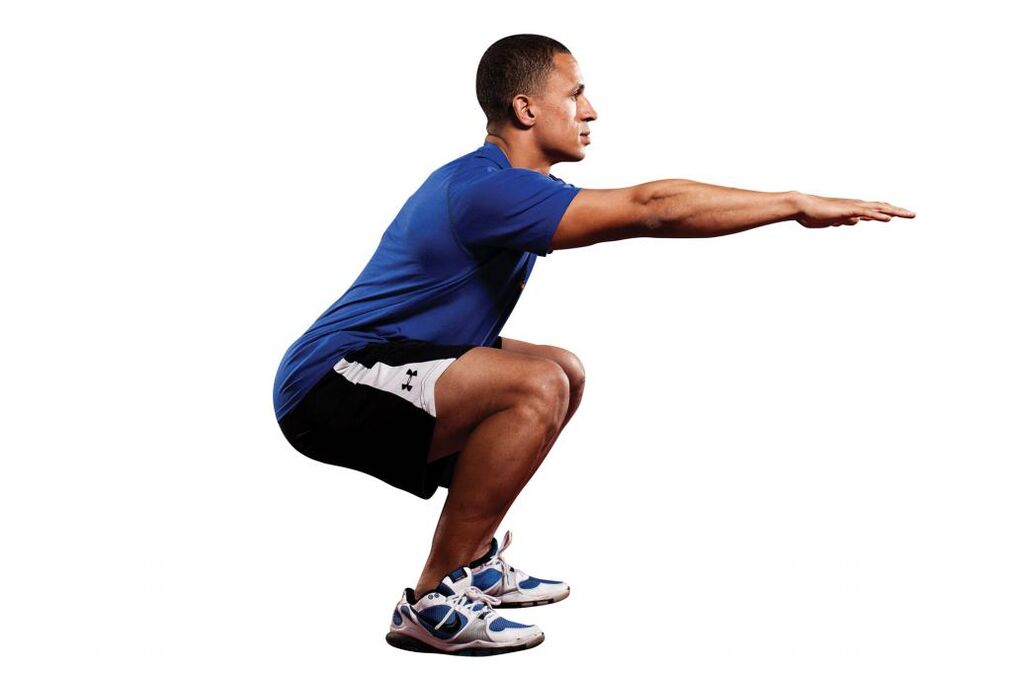
Let's consider the most effective types of squats as a method of treating prostatitis:
- Classic squat. You have to stand straight, with your feet shoulder-width apart. Squats are performed by bending the legs at the knees, without lifting the heels from the floor, the back is straight, it is desirable to squat below the level of the pelvis.
- He squats on an "invisible" imaginary chair.
- Squat on one leg while the other leg is extended forward. I must say that this exercise is suitable for physically fit men.
- Squatting with weights, namely dumbbells. It is better to perform such squats with light weight and only after consulting a urologist. The squat complex should be started with a small number of repetitions (up to 10 times) and gradually increase their number, ideally squats should be increased to 100 repetitions.
Prevention
Prevention of prostatitis, which occurs in the prostate gland due to the inflammatory process, can be divided into two types, namely:
- prevention of the primary development of the disease;
- prevention of re-inflammation following the treatment of already diagnosed prostatitis.
In both cases, preventive measures are similar and should be taken into account by men at risk (age over 30, sedentary lifestyle, work involving vibration in the pool area, irregular or irregular sex life, hypothermia).
Recommendations
So, among the conditions for the prevention and prevention of prostatitis, the following should be considered:
- Physical activity. At the same time, emphasis should be placed on outdoor sports, swimming, fitness, and excessive physical exertion (power sports) and cycling should be avoided in the event of a recurrence of the disease.
- It is necessary to limit the normalization and control of nutrition, namely too fatty, smoked, fried, pickled and salty foods. In nutrition, the emphasis should be placed on foods that normalize bowel function (to prevent hemorrhoids), drink plenty of water and minimize alcohol consumption.
- Normalization of sexual life (frequent change of partners can lead to various infections in the genital area and, as a result, the inflammatory process of the prostate).
In addition, regular sexual intercourse with a regular partner (2-3 times a week) helps prevent congestion and ensures good blood circulation to the prostate.






























